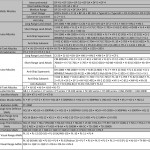 US intelligence’s findings holding Russian President Vladimir Putin directly responsible for a cyber campaign that ensured Republican Donald Trump’s victory in the 2016 presidential election betrays Washington’s weakness as much as Moscow’s deceit.
US intelligence’s findings holding Russian President Vladimir Putin directly responsible for a cyber campaign that ensured Republican Donald Trump’s victory in the 2016 presidential election betrays Washington’s weakness as much as Moscow’s deceit.
After initially discounting Russia’s manipulation, President-elect Trump, in his first post-election press conference on 11 January, accepted the findings. But, while he acknowledged that Russia was behind the hacking of Democratic Party institutions during the presidential election, he stressed that the US is cyber attacked not just by Russia, but many other countries including China.
In the 20-page declassified version of its report, Assessing Russian Activities and Intentions in Recent US Elections, released on 6 January, the US Intelligence Community – comprising the Central Intelligence Agency (CIA), Federal Bureau of Investigation (FBI) and National Security Agency (NSA) – details how Putin ordered an influence campaign aimed at the 2016 US presidential election. The report discloses Putin and his government’s “clear preference” for Trump that motivated the denigration of his Democrat rival, Secretary Hillary Clinton, and ultimately harmed her electability and potential presidency.
The most alarming assessment, however, concerned “Russia’s goals” to undermine public faith in the US democratic process. The report cited Moscow’s cyber onslaught as not only the most recent expression of its longstanding desire to undermine the US-led liberal democratic order, but also demonstrative of “a significant escalation in directness, level of activity, and scope of effort compared to previous operations”.
Such an evaluation unequivocally signifies a direct Russian attack on the US and its interests. After all, universal suffrage is the underpinning of the democracy the US is, and its concerted subversion was aimed at advancing a sort of ‘regime change’, no less.
If Moscow could install a US President it desires with such alacrity, Washington stands completely vulnerable to such excesses. Russia has simultaneously proved it can subjugate its most powerful adversary without firing a single shot or launching a single missile. “Putin’s public views of the disclosures suggest the Kremlin and the intelligence services will continue to consider using cyber-enabled disclosure operations because of their belief that these can accomplish Russian goals relatively easily without significant damage to Russian interests,” the report notes.
American intelligence determined that its Russian counterpart researched US electoral processes and related technology and equipment since early 2014, gaining access to Democratic National Committee (DNC) networks as early as in July 2015 and maintaining that access until at least June 2016. It also found some Russian paid social media users or ‘trolls’ starting to advocate for Trump by December 2015. It besides established that Russia’s General Staff Main Intelligence Directorate (GRU) targeted cyber operations at the US election from March 2016, collecting against primary campaigns, think tanks, and lobbying groups it viewed as likely to shape future US policies.
The US intelligence report makes no mention of when the Obama administration was made aware of the Russian campaign, though President Obama likely knew this early enough through the intelligence-focused Presidential Briefs scheduled for him daily at the White House. Yet, ‘retaliation’ came only on December 9 when he ordered a full review into the malicious cyber activity. Twenty days later, once the intelligence report was out, he issued an executive order providing additional authoritative response to cyber activity aimed at interfering with or undermining the US’s election processes and institutions, or those of its allies or partners.
By that new authority, the President sanctioned GRU, Russia’s military intelligence, and FSB, the civilian security service, four GRU officers and three companies that provided material support to GRU’s cyber operations. Obama also ordered the expulsion of 35 Russian diplomats and the closure of two “recreational facilities” in New York and Maryland that were allegedly used for Russian intelligence activities, pledging further actions, “some of which will not be publicized”.
It is curious why this reprisal was so late in coming. It raises questions whether US intelligence had failed to adequately gauge the Russian campaign early enough, or it had the knowledge but failed to inform the Obama administration in time, or if it did inform in time, Washington had been unable to counter, or incapable of countering, the cyber intrusion or even control the damage it was causing.
If the Obama administration now concludes that the election result has been completely stage-managed by a hostile external power, it must redress this fraud on its nationhood by using the option of declaring the 2016 elections null and void and seeking a re-election. After all, the winning candidate, Trump, too has acknowledged Russian meddling. As Moscow has denied any intervention and called for evidence of its involvement, Obama must heed the call by all Democratic senators on the Senate Intelligence Committee to declassify the full intelligence report.
While the US Constitution provides no scope for re-election, it can be allowed if Congress were to pass a Constitutional amendment for ratification by 38, or three-fourths, of the 50 States. The US’s Supreme Court too could order a re-vote if it ascertained massive fraud in the electoral process.
Washington can also well approach the United Nations and its International Court of Justice under Article 2(4) of the UN Charter. The Article proscribes the threat or use of force by all UN members against the territorial integrity or political independence of any state. The UN Security Council can take or authorize measures of collective enforcement against the aggressor, the International Court identifying ‘force’ as regardless of the weapons employed. This would include cyber operations, once their effects are deemed comparable to armed aggression. The Security Council’s responsibility extends to maintaining international peace and security in cyberspace.
Any further inaction on this cyber war will only embolden the assailant and render the US vulnerable to greater hostility in future.
Courtesy: http://www.claws.in/1689/russias-cyber-war-options-before-the-us-sarosh-bana.html




